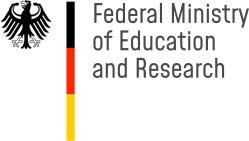Yonatan Moss

Buber Fellow: 2013-2017
Social and Theological Aspects of Christianity in Late Antiquity
Formation of the Patristic Canon, Textual Commentary and Scholarship in Late Antiquity
Jewish-Christian Relations under Islam and in Medieval Europe
Historiography of the Jesus Movement
Curriculum Vitae:
Education
-
2013: Ph.D., Religious Studies, Yale University
-
2010-2011: M.A., M.Phil., Religious Studies, Yale University
-
2005: B.A., magna cum laude, Classics and Linguistics, Hebrew University
-
1995-2000: Talmudic Studies, Yeshivat Har Etzion
Languages
-
Arabic
-
Aramaic
-
Coptic
-
English
-
French
-
German
-
Greek
-
Hebrew
-
Italian
-
Latin
-
Syriac
-
Yiddish
Publications:
Forthcoming Publications
-
Incorruptible Bodies: Christology, Society and Authority in Late Antiquity (Berkeley and Los Angeles: University of California Press, forthcoming 2016). ISBN: 9780520289994; e-book ISBN: 9780520964341.
-
“Fish eats Lion eats Man: Saadia Gaon, Syriac Christianity and the Resurrection of the Dead,” Jewish Quarterly Review 106 (forthcoming, 2016). Recipient of the Prof. Shlomo Pines Award for Outstanding Scholarship (Hebrew University).
-
“‘I Trapped you with Guile:’ Rationalizing Theology in Late Antiquity,” in Yohannan Friedmann and Christoph Markschies, eds., Rationalization and Religions (Berlin: De Gruyter, forthcoming, 2016).
-
“‘From Syria all the way to Rome:’ Ignatius of Antioch’s Pauline Journey to Christianity,” in Maren R. Niehoff, ed. (with Reinhard Feldmeier), Journeys in the Roman East: Imagined and Real (Tübingen: Mohr Siebeck, forthcoming, 2016).
-
“Severus of Antioch’s 83rd Cathedral Homily,” in Youval Rotman and Bar Blinitzky, eds., Anthology of Syriac Literature (Tel Aviv: Tel Aviv University Press, forthcoming, 2016) (In Hebrew).
-
“Severing Severus: On the Survival of Severus of Antioch’s Writings in Greek,” In review for Greek, Roman, and Byzantine Studies.
Publications
-
“The Language of Paradise: Hebrew or Syriac? Linguistic Speculations and Linguistic Realities in Late Antiquity,” in Markus Bockmuehl and Guy G. Stroumsa, eds., Paradise in Antiquity: Jewish and Christian Views (Cambridge: Cambridge University Press, 2010), 120-137.
-
“Scholasticism, Exegesis and the Historicization of Mosaic Authorship in Moses bar Kepha’s On Paradise,” Harvard Theological Review 104:3 (2011), 325-348.
-
“Disorder in the Bible: Rabbinic Responses and Responsibilities,” Jewish Studies Quarterly 19:2 (2012), 104-128.
-
“Noblest Obelus: Rabbinic Appropriations of Late Ancient Literary Criticism,” in Maren R. Niehoff, ed., Homer and the Bible in the Eyes of Ancient Interpreters: Between Literary and Religious Concerns (Leiden: Brill, 2012), 245-267.
-
“‘Packed with Patristic Testimonies:’ Severus of Antioch and the Reinvention of the Church Fathers,” in Brouria Bitton-Ashkelony and Lorenzo Perrone, eds., Personal and Institutional Religion: Thought and Praxis in Eastern Christianity (Turnhout: Brepols, 2013), 227-250.
-
“In What Language Did Rashi Teach Torah? Hints from his Commentary on the Talmud,” in Avinoam Cohen, ed., Rashi and his Disciples (Ramat Gan: Bar Ilan University Press, 2013), 139-149 (In Hebrew).
-
“The Rise and Function of the Holy Text: Severus of Antioch, the Babylonian Talmud, and Beyond,” in Carol Harrison et al., eds., Patristic Studies in the Twenty-first Century: Proceedings of an International Conference to Mark the 50th Anniversary of the International Association of Patristic Studies (Turnhout: Brepols, 2015), 521-545.
-
Philo of Alexandria: De Plantatione: Translated from Greek into Hebrew with an Introduction and Annotations (Jerusalem: The Israel Academy of Sciences and the Bialik Institute, 2015).





